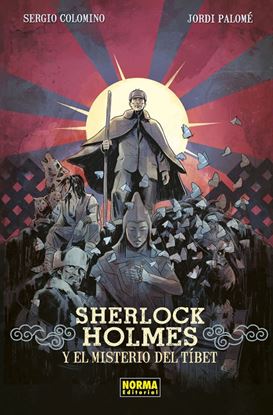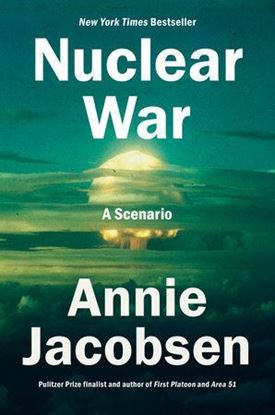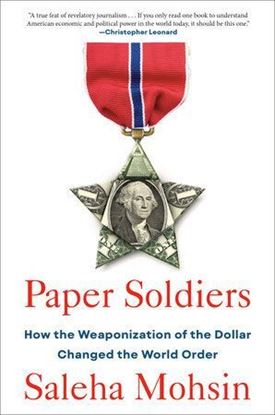

BEACH READ (SPECIAL EDITION)
Augustus Everett is an acclaimed author of literary fiction. January Andrews writes bestselling romance. When she pens a Happily Ever After, he kills off his entire cast.
They’re polar opposites.
In fact, the only thing they have in common is that for the next three months they’re living in neighboring beach houses, broke and bogged down with writer’s block.
Then one hazy evening, one thing leads to another and they strike a deal designed to force them out of their creative ruts: Augustus will spend the summer writing something happy, and January will pen the next Great American Novel. She’ll take him on field trips worthy of any rom-com montage, and he’ll take her to interview surviving members of a backwoods death cult (obviously). Everyone will finish a book and no one will fall in love. Really.
1,995
1,496
PECADOS 2. REY DE LA SOBERBIA (ED. ESP)
INTROVERTIDO. CAUTELOSO. EXTREMADAMENTE CORRECTO.
Kai depende de una votación para convertirse en el CEO de su imperio familiar, por lo que el billonario no puede permitirse el lujo de distraerse con Isabella. Sofocado por responsabilidades y promesas, cuando están juntos siente que finalmente puede respirar.
AUDAZ. IMPULSIVA. ALEGRE.
Isabella no ha asistido a una sola fiesta en la que no fuera el centro de atención ni ha conocido a un hombre al que no
pueda enamorar…, excepto a Kai, que es miembro del club exclusivo en el que trabaja como camarera.
Pero aunque les cueste todo lo que tienen, no pueden resistirse a caer en la tentación de sus deseos prohibidos.
1,995
1,496
SHERLOCK HOLMES Y EL MISTERIO DEL TIBET
Año 1892. Desengañado tras los sucesos de Sherlock Holmes y el legado de Moriarty, el detective de Baker Street dirige sus pasos hasta el Tíbet, donde emprende el camino de la iluminación siguiendo las enseñanzas del Dalái Lama. Una paz que se verá alterada cuando un misterio digno del mayor de los investigadores requiera de sus habilidades: la reaparición de un mal ancestral que acecha en las cimas inexploradas del Himalaya.
1,995
1,496
LONESOME. INTEGRAL 1
ENERO DE 1861. Faltan pocos meses para que en Estados Unidos estalle una guerra civil entre el norte unionista y el sur confederado. El predicador Markham y su banda atizan la hoguera de odios sembrando el terror a su paso por las poblaciones fronterizas entre Kansas y Misuri. Un jinete sin nombre lo sigue de cerca, dejando a su vez un rastro de muerte y destrucción. ¿Quién es? ¿Qué pretende? ¿Qué sucederá cuando alcance Markham?
1,995
1,496
NUCLEAR WAR
Every generation, a journalist has looked deep into the heart of the nuclear military establishment: the technologies, the safeguards, the plans, and the risks. These investigations are vital to how we understand the world we really live in—where one nuclear missile will beget one in return, and where the choreography of the world’s end requires massive decisions made on seconds’ notice with information that is only as good as the intelligence we have.
Pulitzer Prize finalist Annie Jacobsen’s Nuclear War: A Scenario explores this ticking-clock scenario, based on dozens of exclusive new interviews with military and civilian experts who have built the weapons, have been privy to the response plans, and have been responsible for those decisions should they have needed to be made. Nuclear War: A Scenario examines the handful of minutes after a nuclear missile launch. It is essential reading, and unlike any other book in its depth and urgency.
1,995
1,496
PAPER SOLDIERS
In 1995, Treasury Secretary Robert Rubin re-defined the next thirty years of currency policy with the mantra, “A strong dollar is in America’s interest.” That mantra held, ushering in exceptional prosperity and cheap foreign goods, but the strong dollar policy also played a role in the devastating hollowing out of America’s manufacturing sector. Meanwhile, abroad, the United States increasingly turned to the dollar as a weapon of war. In Paper Soldiers, Saleha Mohsin reveals how the Treasury Department has shaped U.S. policy at home and overseas by wielding the American dollar as a weapon—and what that means in a new age of crisis.
For decades, America has preferred its currency superpower-strong, the basis of a “strong dollar” policy that attracted foreign investors and pleased consumers. Drawing on Mohsin’s unparalleled access to current and former Treasury officials like Robert Rubin, Steven Mnuchin, and Janet Yellen, Paper Soldiers traces that policy’s intended and unintended consequences, including the rise of populist sentiment and trade war with China—culminating in an unprecedented attack on the dollar’s pristine status during the Trump presidency—and connects the dollar’s weaponization from 9/11 to the deployment of crippling financial sanctions against Russia. Ultimately, Mohsin argues that, untethered from many of the economic assumptions of the last generation, the power and influence of the American dollar is now at stake.
With first-hand reporting and fresh analysis that illustrates the vast, often unappreciated power that the Treasury Department wields at home and abroad, Paper Soldiers tells the inside story of how we really got here—and the future not only of the almighty dollar, but the nation’s teetering role as a democratic superpower.
1,995
1,496














